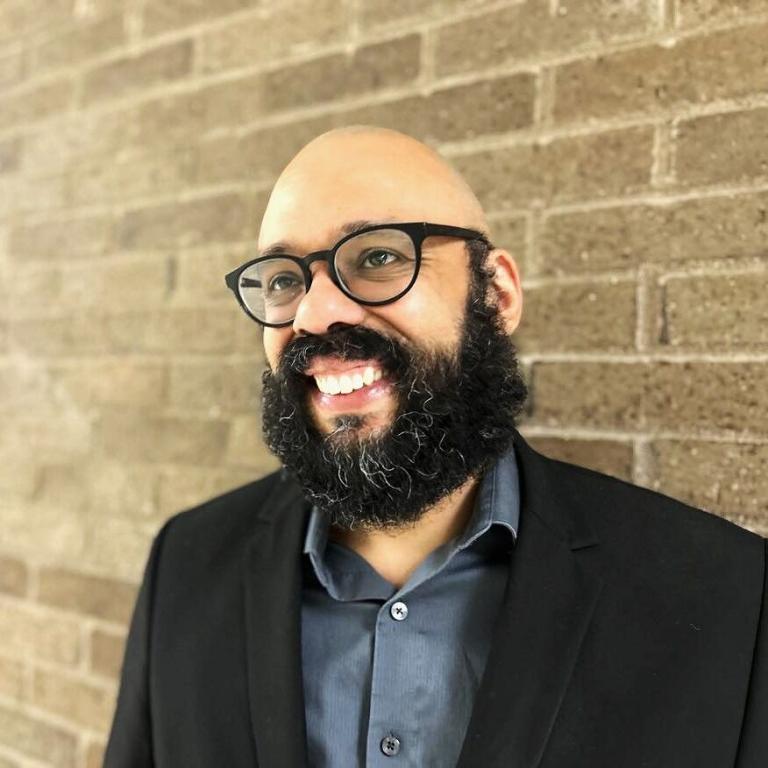The recent election may have marked the end of woke ideology as a political force. But ideas remain, even after the general public repudiates them, More consequential may be a book that dismantles the woke mindset in its own terms and using its own methods.
In his book We Have Never Been Woke: The Cultural Contradictions of a New Elite (Princeton University Press), the black sociologist Musa al-Gharbi deconstructs the concept.
In his review of the book, entitled Waking Up from Woke, Michael C. Behrent describes al-Gharbi’s background as a working class young man from rural Arizona who, by hard work and overcoming many obstacles, made it to graduate school at Columbia.
At Columbia, al-Gharbi came to realize that white elites are hell-bent on presenting themselves as champions of progressive causes even as they take for granted the social hierarchy that ensures their privileged status. In 2016, he watched as Columbia students panicked over Donald Trump’s election, believing they were “uniquely vulnerable” to his regime while paying little heed to campus service workers who, according to the students’ own narratives, would be most harmed by the new administration. “Although the classrooms were full of tears in the days that followed, one never saw, say, the janitors making a scene, sobbing uncontrollably about politics as they scrubbed rich kids’ messes out of the toilets.”
Then came the summer of 2020. Al-Gharbi watched as “overwhelmingly white” demonstrators composed of “academics and professionals” held up signs declaring “Black Lives Matter” on the medians of Broadway on the Upper West Side. What stood out to him was not their message but their behavior: “On several occasions, I observed demonstrators engaged in this ritual literally right in front of — sharing the median with — homeless Black men who didn’t even have shoes. They were crowding the benches that homeless people were using, standing amid bags that contained their few worldly possessions, in order to cheer on BLM. Meanwhile, the Black guys right in front of them seemed to be invisible.”
Such experiences led him to the questions addressed in this book:
Why is it,” he asks, “that people who benefit the most from what sociologists call institutionalized racism or sexism also happen to be the people most conspicuously concerned with ‘ideological’ racism, sexism, and so on . . . ? How can elites whose lifestyles and livelihoods are oriented around the production, maintenance, and exploitation of inequality still view themselves as egalitarians?”
His answers draw on the “New Class” theory advanced by the late Lutheran sociologist Peter Berger, among others. See my post on the subject from 2018. Berger describes a “a struggle between two elites.”
On the one side is the old elite of business enterprise, on the other side a new elite composed of those whose livelihood derives from the manipulation of symbols — intellectuals, educators, media people, members of the “helping professions,” and a miscellany of planners and bureaucrats.
The old economic class is concerned with the production of actual things–owners of manufacturing companies, factory and construction workers, farmers who grow food, small business owners who sell actual products. Whereas the new economic class is concerned with the production of ideas. Berger continues, anticipating the very vocabulary we are hearing today:
As in all class struggles, this one is over power and privilege. The new class is a rising class, with its own very specific (and identifiable) vested interests. But, in the public rhetoric of democracy, vested interests are typically couched in terms of the general welfare. In this, the new class is no different from its current adversary. Just as the business class sincerely believed (presumably still believes) that what is good for business is good for America, the new class believes that its own interests are identical with the “public interest.” It so happens that many of the vested interests of the new class depend on miscellaneous state interventions; indeed, a large portion of the new class is economically dependent an public-sector employment or subsidization.
The New Class has come a long way since Berger wrote those words in the 1980s. The rise of information technology is all about manipulation of symbols. No wonder the tech moguls of the New Class traffic in “virtual reality” and that the knowledge manipulators in our universities insist that objective reality is a mere subjective construction.
Al-Gharbi describes members of what Berger calls the New Class as “symbolic capitalists.” The old-fashioned capitalists accumulated material wealth and flaunted it with their ostentatious material possessions, thus building up their social status. The symbolic capitalists accumulate “cultural capital” and flaunt their social status by ostentatious displays of their virtue.
For al-Gharbi, wokeness is organically tied to “symbolic capitalists” — that is, the knowledge-economy professionals who “traffic in ideas, symbols, and information.” They include tech-company professionals, lawyers, journalists, and professors, among others. Though they are mostly in the top quintile of the income distribution, symbolic capitalists are primarily concerned with accumulating cultural capital. First coined by French sociologist Pierre Bourdieu, “cultural capital” refers to the degrees, publications, philanthropic work, and other markers of status that confer cultural preeminence as surely as monetary capital ensures wealth. Wokeness, al-Gharbi maintains, has become one of the hottest items in markets for cultural capital.
As “a self-serving strategy employed in intra-elite status contests,” wokeness primarily helps not so much poor people or racial minorities. Rather, it helps the privileged elite that holds this philosophy. Al-Gharbi cites the “ever-growing DEI-industrial complex.” In fact, summarizes Behrent, “the lifestyles of symbolic capitalists tend to exacerbate social inequality rather than mitigate it. City-dwelling and the preference for online and home-delivered goods encourage the Amazonification and Uberization of the economy, resulting in poorly paid and precarious jobs and dependence on immigrant labor.”
The final irony is that woke symbolic capitalists have so little self-awareness. Their own critical theory teaches that individuals tend to be blind to their own class dynamics, but they do not apply that principle to themselves. To be “woke” means to wake up to the systematic power relationships that underly society. But the “woke” are still asleep to their own systematic power relationships. This is why al-Gharbi entitles his book We Have Never Been Woke.
Photo: Musa al-Ghabri from Amazon.com












